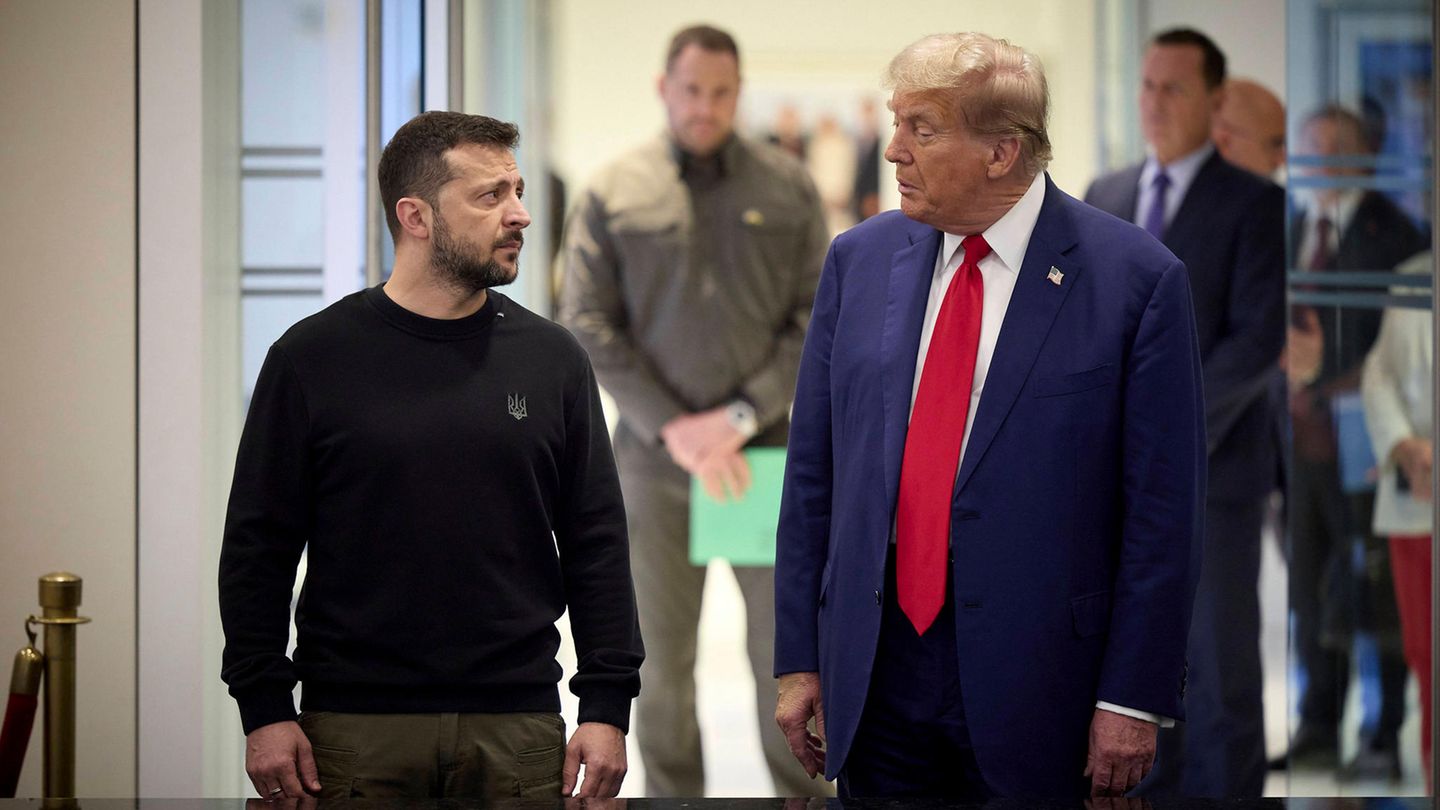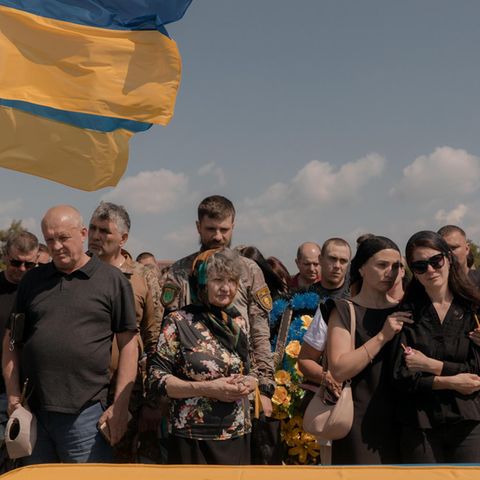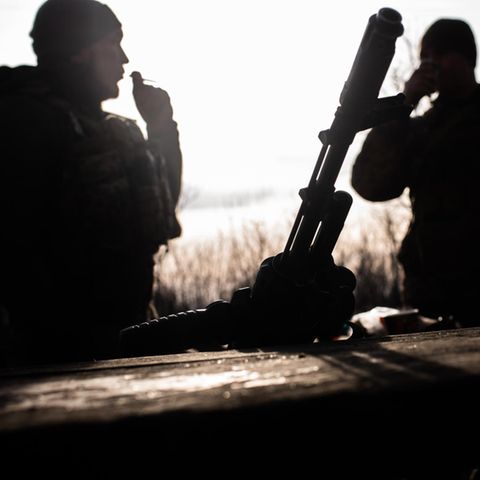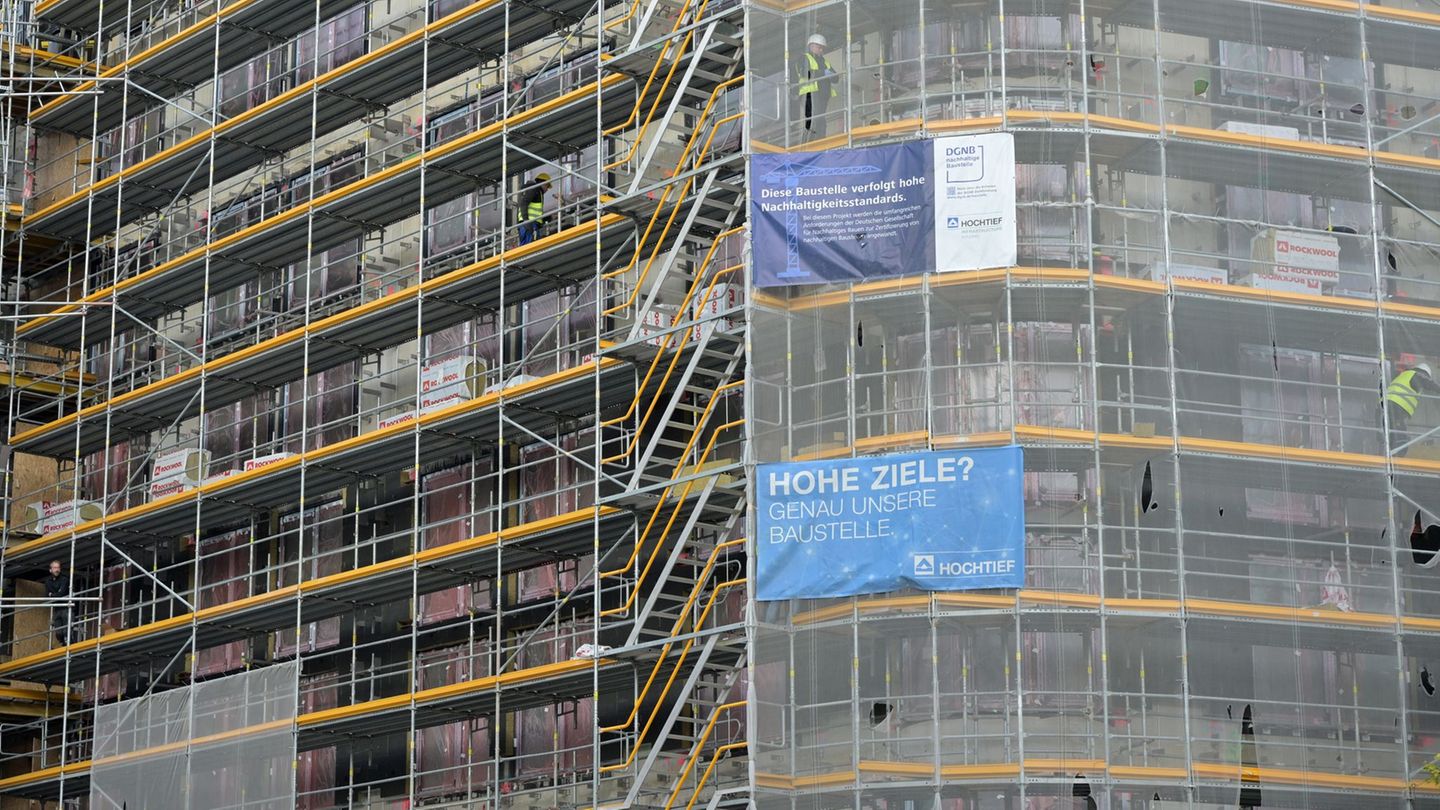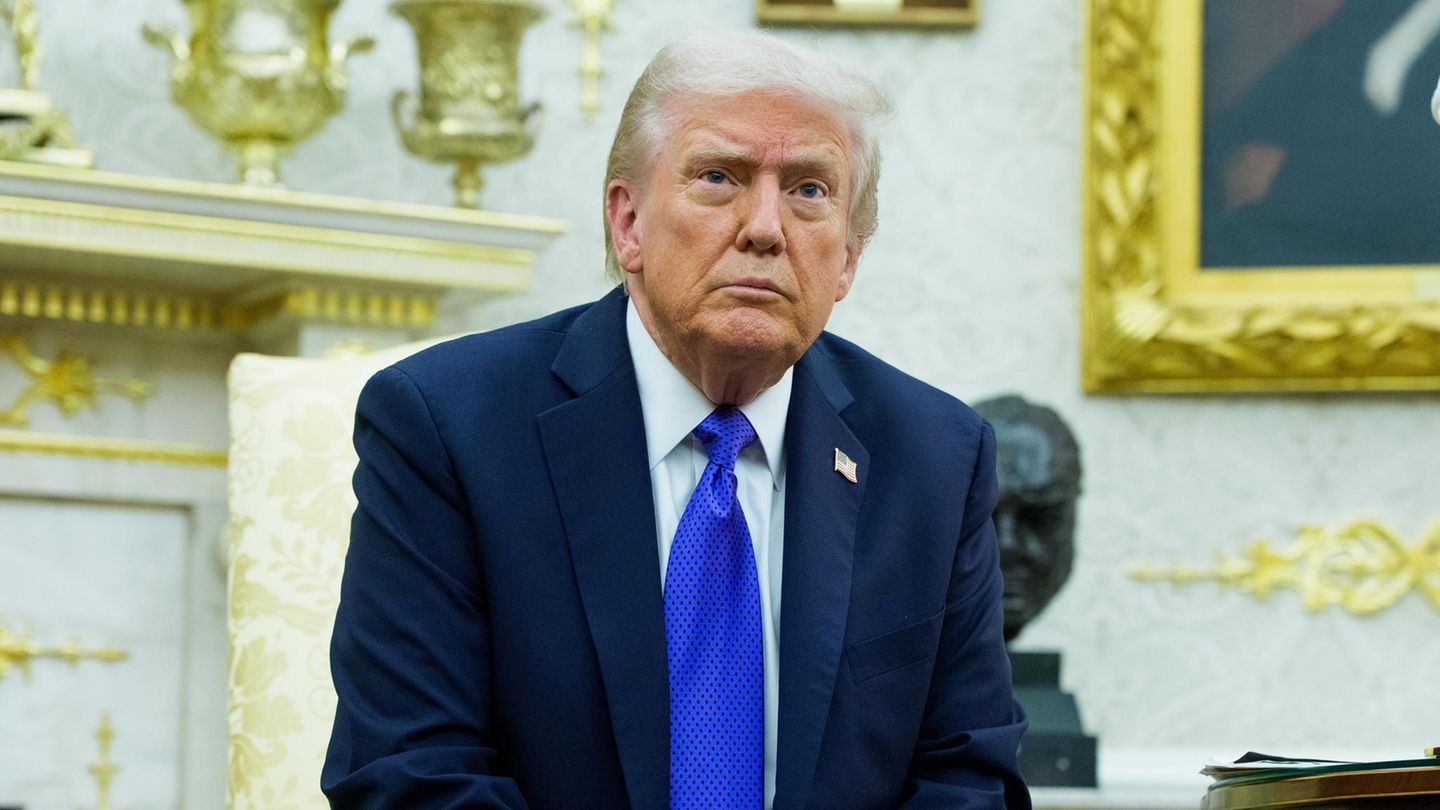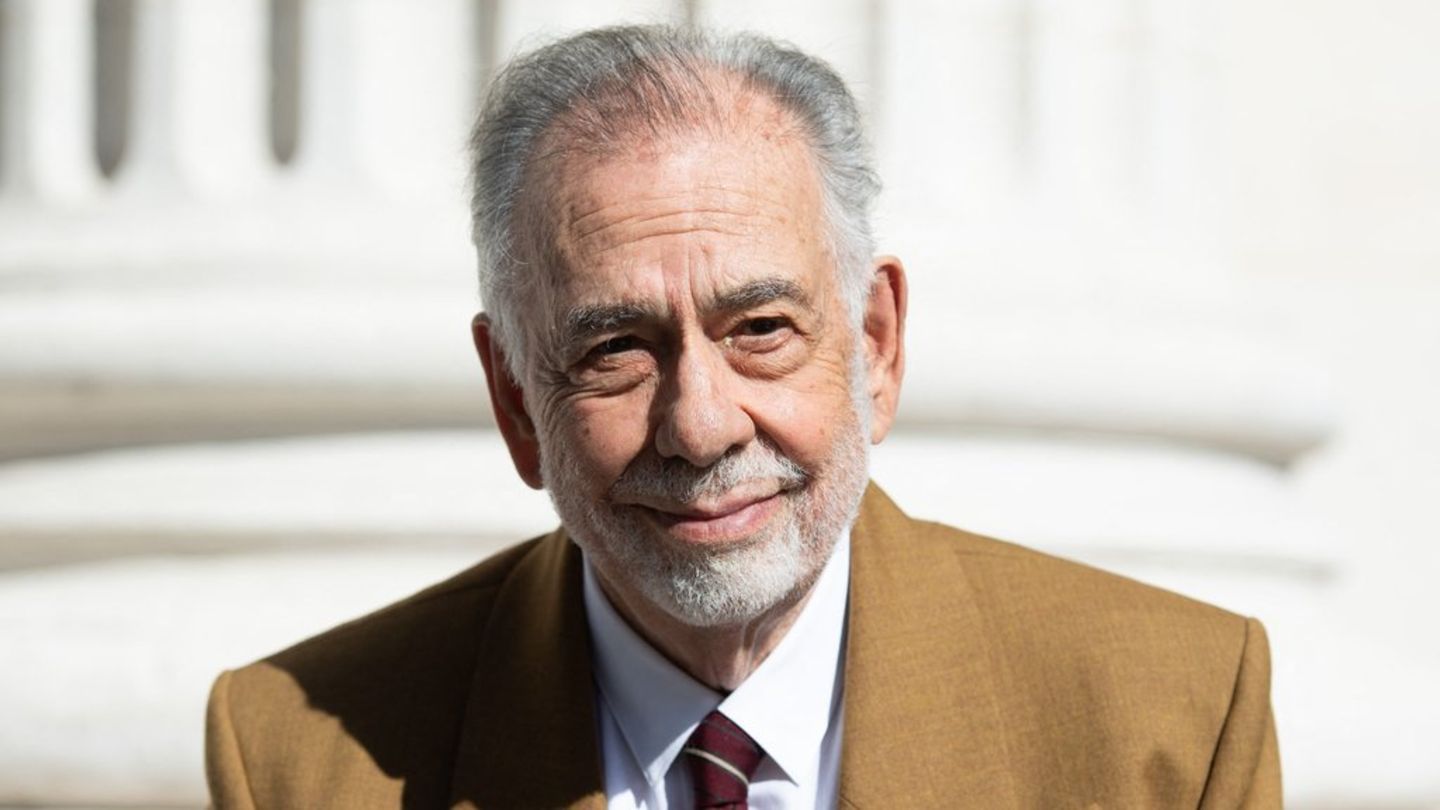Copy the current link
At the beginning of the Russian war of aggression believed star-Author Moritz Gathmann believes Ukraine will win. Today he sees only one way out to stop the deaths: negotiations.
The war began for me with two thuds at 6 a.m. in a hotel bed in Kramatorsk. The first one woke me up, I opened my eyes and wondered if I had dreamed it.
Then came the second impact.
I was wide awake and woke up my colleague. Two Russian missiles hit the military airfield near the city.
The major Russian attack on Ukraine had begun, despite all the wishful thinking that my colleagues and I had clung to the evening before: Maybe Putin’s attack on the Donbas would be limited, maybe it was all just saber rattling for Ukraine and the To force the West to make concessions? No, Putin wanted to know, wanted to go down in history like Peter the Great, whatever the cost.
My Russian friends dreamed of so much and never of war
For me, my world collapsed with these dull impacts near Kramatorsk. I had been dedicated to building bridges ever since I learned Russian at school. Since studying, I had traveled to many countries where Russian was easy to get along with: in addition to Russia, the South Caucasus, Belarus, Ukraine, and later also Central Asia. I explained to the people there about the Germans with all their strangeness, and to the Germans the very different worldviews of the people in the countries that had emerged from the colossus of the Soviet Union.
And despite all the differences, despite the authoritarian slide of some regimes, especially Russia and Belarus, despite the first Russian aggressions against Ukraine from 2014, it seemed until the end that the train of history could be kept on the tracks – towards Understanding, if not agreement. How many friends did I have in Russia who were so similar to me, with whom I traveled through Berlin, Moscow and St. Petersburg, who dreamed of a lot, but not at all of a war against the “NATO fascists”?
But Putin had other plans, and he had enough people to follow him. It was he who tore down the bridges that many people had built on both sides over decades. I waited in vain for the Russians themselves to stop him. Maybe I had closed my eyes for too long to how much Putin had prepared the Russians for this moment.
I wanted nothing more in these first months than for this war to end with a crushing defeat for Russia, an ignominious end for Putin, a just punishment for his inhumane power politics. An end to Putin would also have meant the end of his aide Alexander Lukashenko in neighboring Belarus, who since 2020 has been more brutal than ever against any opposition.
At that time I was hoping for a “zero hour” for Russia, i.e. a similar situation from which Germany had to start over after 1945: a collapse of the old system, then a (laborious, long-term) rethinking of the mistakes that had made the country and its… had led society into catastrophe, and the creation of a system that would avoid these mistakes in the future.
I looked for a long time into the dead man’s pale face
The year 2022 initially gave hope: the West, especially Germany, did not come to terms with Putin at the expense of Ukraine – contrary to what Putin had hoped. And the Ukrainian army, supported by a society that consolidated itself in the face of the existential threat as never since independence, inflicted painful defeats on the Russians.
In the fall of 2022, I was there when the Ukrainians drove the Russian army out of the Kherson region. I remember the killed Russian soldier lying on the highway towards Kherson. I looked at his pale face for a long time. And thought: What the hell made you come here? You could be sitting peacefully in your living room in Krasnoyarsk or Penza, but instead you are lying dead on a street in southern Ukraine. I hardly felt any pity, but I felt great satisfaction: the aggressor got his just punishment.
The liberation of the Kharkiv region followed shortly afterwards, and Ukrainians looked forward to 2023, the continuation of the counteroffensive. I was excited. And at the same time I saw the great sacrifices that the Ukrainians made: In the winter I met with Ihor, a soldier whom I had met on a refugee train with his wife and children. He had taken them to the border, then he had gone to war.
Ihor told me the history of what I had experienced as a march through Kherson: months of trench warfare in which his battalion was wiped out several times – and had to be replenished with new soldiers. But he was also convinced that the sacrifices were not in vain: now, in 2023, the Russians would finally be thrown out of the country. Polls show half of Ukrainians were convinced the war would end this year. Zelenskyj had issued the motto at the beginning of the year: It was called victory.
But not spring, not summer, nor autumn brought the hoped-for victory. Instead, I stood in cemeteries where dozens of blue and yellow flags over fresh graves rattled in the cold wind, sat in kitchens of sobbing widows who had buried their husbands.
Frontline city of Kharkiv: This photographer’s pictures show the full drama of the situation
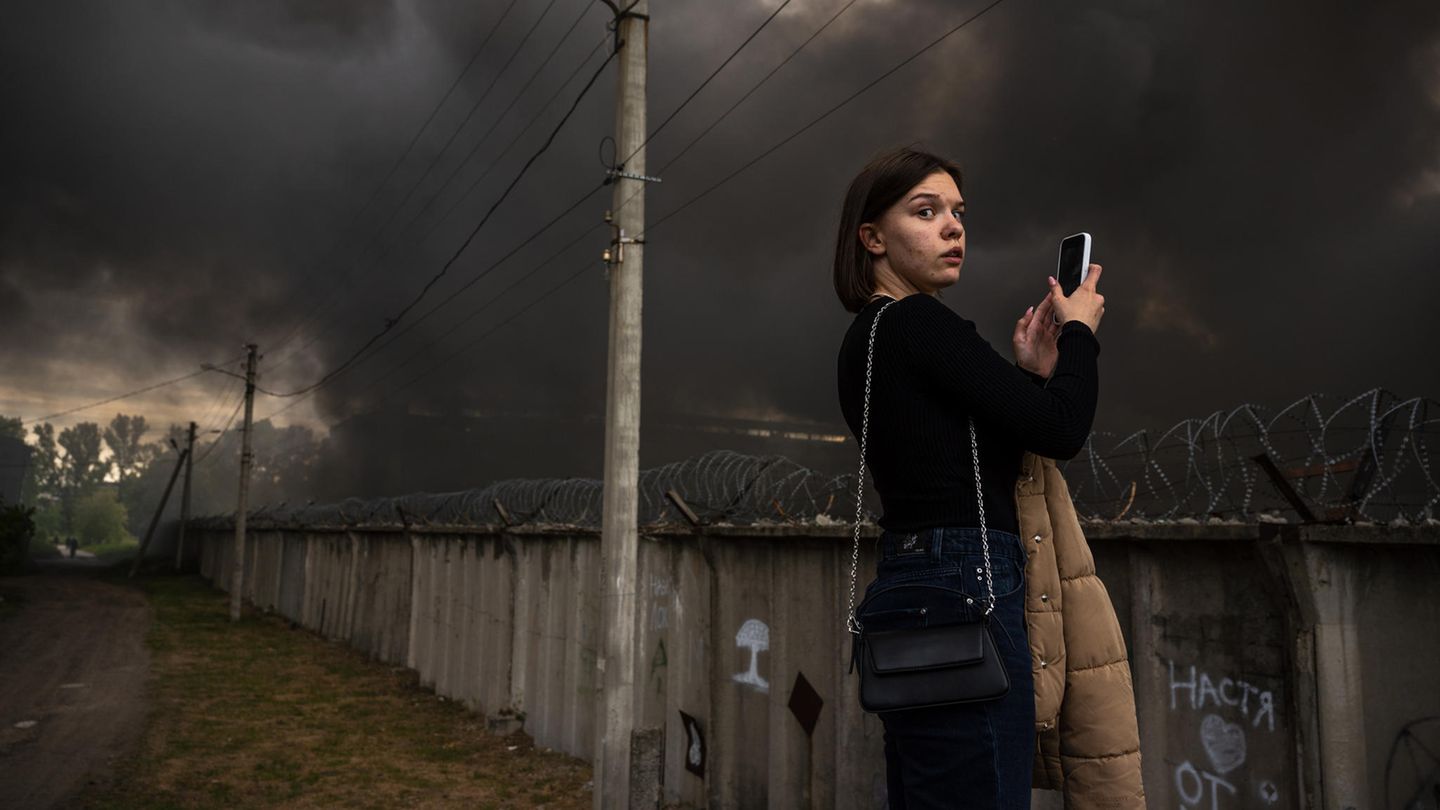
When war breaks into everyday life: A young woman takes photos of the burning Epicenter shopping center in Kharkiv with her cell phone.
© Stanislav Krupar
The year 2023 ended in deep depression for Ukrainians, and I was dragged along with it. In a commentary for Deutschlandfunk, I put an end to the illusions: A people of 30 million cannot win a war of attrition against a country of 145 million.
I was accused of betraying Ukraine
“The truth is: this war will end in a draw, with a freeze on the front line and a sophisticated political formula regarding the status of the Russian-occupied territories,” I wrote. And received angry comments from Ukraine supporters. I was accused of betraying Ukraine. Ukraine simply needs more and better weapons, Russia needs to be sanctioned even more strongly, then victory is possible.
In winter I sat at my desk and despaired. Did I betray Ukraine? Shouldn’t I rather hold the flag high and demand more weapons from Scholz in my comments, which would then bring victory closer? By publicly questioning the Ukrainian victory, wasn’t I weakening the Germans’ already crumbling willingness to support? As a reporter, was I just describing reality – or was I influencing it?
The Ukrainians are fighting doggedly – but the superiority of the Russians is overwhelming
For a while I didn’t know what else to write about Ukraine. But I felt my anger growing at the experts who, far from the wet earth of the Ukrainian heroes’ graves and the widows’ kitchens, were still talking about the Ukrainian victory on the talk show sofas. Or in their university classrooms when Russia would have lost the war.
A year has passed since then. The Ukrainians are defending themselves doggedly, but are losing ground every day against the Russian superiority. The situation had not changed until the end: the West gave Ukraine just enough to defend itself against the aggressor. And military victory remains an impossibility in this war of attrition.
The laws of mathematics cannot be overturned with good words.
The light at the end of the tunnel appears: Donald Trump
On my last trip I met soldiers who told me that they only go to work in the trenches like robots. Patriotism has long been exhausted. “Only the thought that I can prevent the war from coming to my wife and child in central Ukraine keeps me alive,” says one. The mood in Ukrainian society has reached a low plateau: people don’t expect good news, but they don’t see any catastrophe coming either. In this situation, the light at the end of the tunnel appears: Donald Trump.
It may seem absurd to us, but in Ukraine the incoming US President Trump is perceived as a game changer. “He’s a madman, but with him this war will at least end faster,” that soldier Ihor tells me today. After 1,000 days, soldiers like him are fed up with this war of attrition, accompanied by good words from the West about freedom and democracy, but with no prospect of an end. Who can blame them?
There is great hope that after almost three years of war the conflict will at least freeze, a so-called “bad peace”. Does this mean we are throwing Ukraine under the bus? No, because it will depend on our support in the future to ensure that Russia does not dare to attack Ukraine again. About supplying Ukraine with everything it needs – and building its own resilience.
Yes, that means weapons and soldiers, so that Putin doesn’t even have the idea of taking on a NATO member, Trump or not. And despite all the hope: it is anything but certain that Trump will succeed in bringing Putin to the negotiating table. Maybe after a few tries Trump will lose interest in it and turn away. Then we Germans and Europeans will be challenged even more than before.
Putin’s system is stable, the population is submissive
And Russia? The country has recorded huge numbers of victims, far higher than those in Ukraine. But zero hour due to a military defeat never happened. The regime is too stable, its population too submissive, and the number of countries on the globe that do not prevent Putin’s attack on Ukraine from doing trade with Russia is too large. And yet there are small shoots of hope: a Russian opposition movement that is organizing abroad, which protested against war and Putin in Berlin on Sunday. And which is preparing for a time after Putin. Contrary to all hopes, it will be a painfully long time before he leaves. But then, maybe, she’ll come back. The time of the bridge builders.
Source: Stern
I have been working in the news industry for over 6 years, first as a reporter and now as an editor. I have covered politics extensively, and my work has appeared in major newspapers and online news outlets around the world. In addition to my writing, I also contribute regularly to 24 Hours World.

